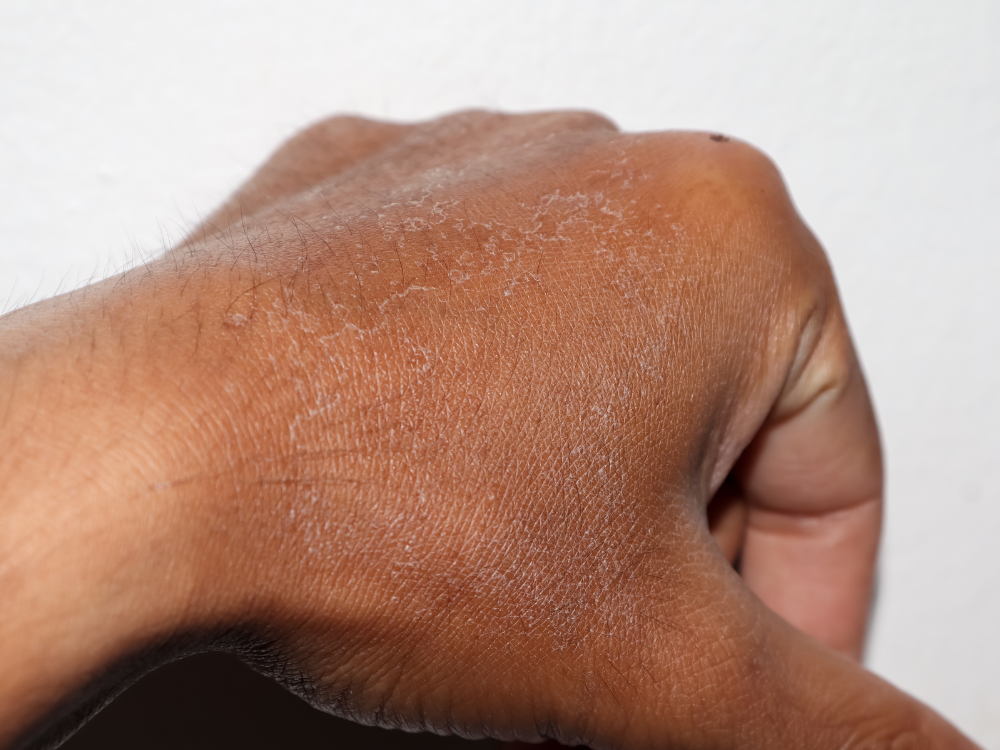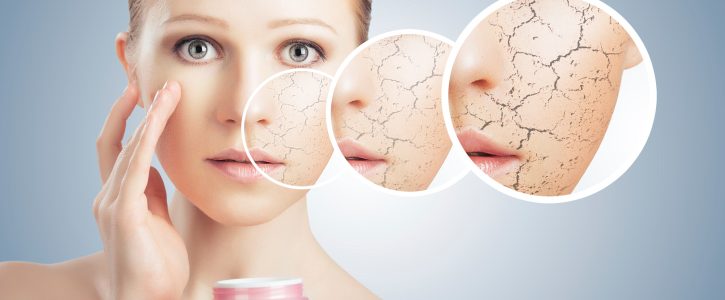
Although dry skin and dehydrated skin sound similar, they are actually different problems requiring different approaches and products. Dry skin occurs from a lack of oil, whereas dehydrated skin happens due to a lack of water or moisture. Understanding the difference is crucial if you want to build an effective skincare routine for dry or dehydrated skin.
What Causes Dry Skin?
Dry skin typically results from a deficiency in the skin’s natural oils. It can also occur from over-stripping the skin with harsh products or be genetic in nature. Together with proteins and lipids, water gives skin its essential characteristics of softness, flexibility, and elasticity. The outer layer of the skin, which contains sebum and sweat, serves to retain essential moisture.
Moreover, intrinsically dry skin may result from a genetic deficiency in fillagrin or natural moisturizing factor (NMF). NMF consists of substances that help retain moisture in the skin’s outermost layer, supporting skin hydration naturally. If you lack fillagrin or NMF, your skin struggles to produce oils that protect the outer barrier. As a result, water evaporates from the skin, leading to dryness, tightness, and irritation.
Extrinsically dry skin often stems from harsh skincare products. Foaming cleansers, alcohol-based toners, and astringents can strip the skin of its natural oils. Therefore, using gentler products is crucial to maintain a healthy skin barrier and avoid further irritation.
What About Dehydrated Skin?
Unlike dry skin, dehydrated skin suffers from a lack of water, not oil. Your skin may produce normal oil levels but still lack the moisture needed for a healthy appearance. Dehydrated skin often appears loose, flaky, red, and shows more prominent wrinkles. Additionally, over-cleansing and environmental factors can worsen dehydration, leading to visible skin damage.
Best Skincare Ingredients for Dry and Dehydrated Skin
Regardless of whether you have dry or dehydrated skin, choosing the right skincare for dry skin is essential. First, avoid lathering cleansers and instead opt for gentle milky cleansers or nourishing oil-based formulas. Although there is no “cure” for dry skin, using the right skin hydration ingredients can significantly help.
For dry skin, seek products rich in lipids such as ceramides, cholesterol, and fatty acids. These ingredients strengthen the skin barrier and help prevent moisture evaporation. They work together to keep your skin hydrated, soft, and protected against environmental aggressors.
For dehydrated skin, prioritize humectants—ingredients that attract and retain water within the skin.
Key humectants include hyaluronic acid, glycerin, urea, pyrrolidone carboxylic acid (PCA), lactic acid, and sorbitol. Additionally, occlusive ingredients such as shea butter, avocado oil, cocoa butter, jojoba oil, and sunflower oil are vital. They create a water-resistant barrier on the skin, sealing in moisture and enhancing long-term hydration.
Ultimately, understanding your skin type and choosing the right products will help restore hydration and overall skin health.
Shop our favorite skincare and more on Derm to Door.com!
Head back to our blog here!


